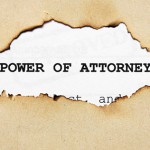After you have recovered from a near-death experience, what are some tasks/things you might want to consider doing promptly (not prioritized except for the first task to do). Call your mother/father assuming they too have recovered from your near-death experience. Call your favorite teacher/athletic coach/mentor and tell him/her or them how much you have appreciated her/him or them (you may need to assume that she/he or they remember you). Invite your closest friend(s) to your home and share a bottle of really good wine or really really good Scotch with her/him or them. Go to that favorite quiet place in
More Legal News & Information... →Section 633.356 of the Iowa Probate Code sets forth a provision that is often overlooked by the estate planning professionals. The provision sets forth a method to avoid probate of an estate in an item of personal property involved is valued at $25,000.00 or less. For example, a person may die with a house titled in joint tenancy with their spouse and have a life insurance policy to their spouse but have a bank account in their individual name. The house passes to the surviving spouse outside of probate due to the fact that the asset is held in joint
More Legal News & Information... →A new Act was passed in 2014 dealing with elder abuse. The new Act defines elder abuse as any of the following: 1. Physical injury to or injury which is at a variance with the history given of the injury or unreasonable confinement, unreasonable punishment, or assault of an vulnerable elder by a person. 2. The commission of a sexual offense under Chapter 709 or Section 726.2 with or against a vulnerable elder. 3. Neglect which is the deprivation of the minimum food, shelter, clothing, supervision, or physical or mental health care, or other care necessary to maintain a vulnerable
More Legal News & Information... →Effective July 1, 2014, the Iowa Uniform Power of Attorney Act became effective. As opposed to the previous law, the new Act provides detailed provisions regarding the setup and operation of a Power of Attorney and the rights and duties of principals (the person who sets up the Power of Attorney), agents (the person who will act on behalf of the principal), and other third parties. The purpose of the Act is to further the use of a Power of Attorney to avoid the need for a setup of a formal court supervised conservatorship. Another purpose of the Act is
More Legal News & Information... →


